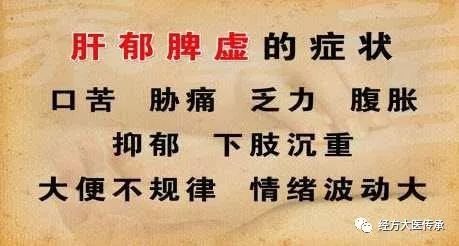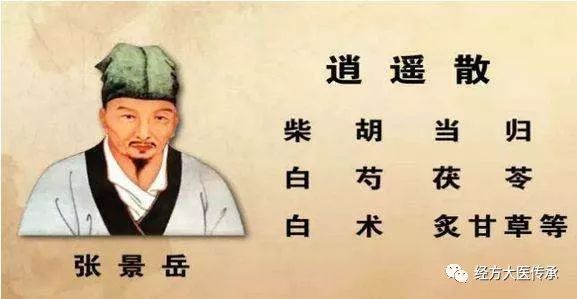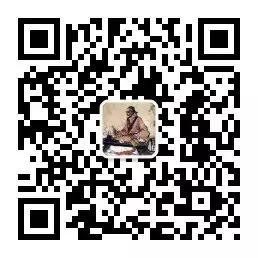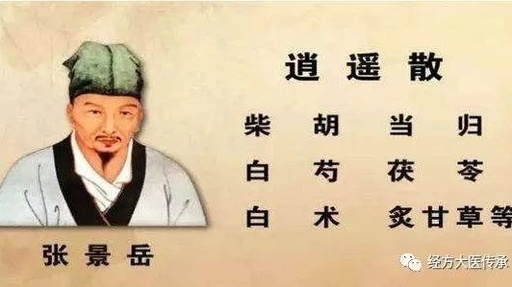Xian pulse is a common pulse pattern in clinical practice, often associated with external pathogens indicating a Shaoyang syndrome. In cases of internal injury and miscellaneous diseases, it frequently indicates liver qi stagnation, internal wind, liver fire, damp-heat in the liver and gallbladder, phlegm syndrome, and fluid retention. In summary, it is predominantly associated with excess conditions, often involving the liver. The Xian pulse in Spleen Deficiency and Liver Excess syndrome is commonly seen in clinical practice but has not received adequate attention, and some confuse it with liver qi stagnation and spleen deficiency. Although both share similarities, one is an excess condition while the other is a deficiency. The former should be treated by soothing the liver and tonifying the earth, while the latter, stemming from earth deficiency, should only tonify the earth and drain wood, without further dispersing. Upon examination, the syndrome of liver qi stagnation and spleen deficiency arises from wood stagnating and earth sinking, leading to dampness. Therefore, treatment involves soothing the liver and eliminating spleen dampness, such as with Xiao Yao Wan (Free and Easy Wanderer Pill). Spleen Deficiency and Liver Excess syndrome is due to the fundamental deficiency of earth qi, thus treatment should focus on tonifying spleen earth and softening the liver. As stated in the “Shang Han Lun”: In cases of cold damage, the yang pulse is tight, while the yin pulse is xian; this indicates urgent abdominal pain, and Xiao Jian Zhong Tang (Minor Construct the Middle Decoction) is indicated. This is due to insufficient qi and blood in the middle jiao, leading to disharmony between the liver and spleen, resulting in abdominal pain. Treatment should involve Jian Zhong Tang to tonify spleen and stomach qi and blood, with an emphasis on softening the liver and draining wood using Bai Shao (White Peony).

Additionally, abdominal pain must be accompanied by diarrhea, and diarrhea must be accompanied by abdominal pain, with the pulse at both guan positions being unbalanced, left xian and right relaxed. Use Tong Xie Yao Fang (Important Formula for Painful Diarrhea), combining Shao Yao (Peony) and Bai Zhu (Atractylodes) to tonify earth and soften the liver. Both cases represent classic formulas for earth deficiency with wood overacting, with the pulse being xian. This illustrates the significance of xian pulse in Spleen Deficiency and Liver Excess syndrome. These are typical cases of Spleen Deficiency and Liver Excess syndrome, where the pulse is xian, which is well understood. However, there are also cases resembling excess conditions of Spleen Deficiency and Liver Excess syndrome, where the pulse is also xian, easily confused with liver qi stagnation or internal heat. I record these for reference by fellow practitioners.
1. Zhang Xichun’s Medical Case
A letter from Li ×× from Yanshan, Hebei: Tianjin Wang Ao, suffering from illness for over a month, extremely fatigued, sought treatment from my younger brother. Upon diagnosis, the pulse was xian, hard, and strong in all six positions, unusually large. Inquiring about the illness, he reported fullness and oppression in the chest, vomiting after eating, and for over a month, he had not retained a single meal, with daily bowel movements two to three times, producing small amounts resembling chicken droppings. He expressed that the discomfort in his heart was indescribable, preferring to leave this world to escape this suffering. Upon careful consideration, the fullness and oppression in the chest seemed to resemble an excess condition; however, the pulse was xian, hard, and large, without any softness. I recalled that Zhen She Tang (Calm and Control Decoction) is indicated for fullness and oppression in the chest with a large and xian pulse, indicating true qi leakage from the spleen and stomach, with counterflow qi rising. It should not be treated as an excess condition. I prescribed the original formula of Zhen She Tang. After taking one dose, vomiting decreased, and the frequency of bowel movements also reduced, with the pulse becoming softer. After four to five doses, all ailments were completely resolved. In the future, when encountering such pulse patterns, I will treat them with this decoction with modifications, and it has always been effective.Zhen She Tang:Ye Tai Shen (5 qian), Qing Ban Xia (2 qian), Fu Ling (2 qian), Sheng Qian Shi (5 qian), Sheng Shan Yao (5 qian), Sheng Zhe Shi (finely ground, 5 qian), Yi Rou (pitted, 5 qian)
2. Chen Xiuyuan’s Medical Case
Li from the west of the city suffered from fullness and oppression in the abdomen, fatigue, and reluctance to speak. The doctor used Xiao Yao San (Free and Easy Wanderer Powder) for thirty doses, resulting in green urine and weak legs. I continued the diagnosis, and the six pulses were rapid and xian. I said: The disease is in the middle earth; the earth qi is originally slow but has become rapid. Rapid indicates a reversal of slow; and combined with the xian pulse, which represents earth being robbed, the herbs greatly harm the earth qi. First, I used Shi Hu (Dendrobium) and Yi Yi Ren (Job’s Tears) to take their sweet and bland properties to tonify the spleen, then used major herbs to rescue. Li held the prescription and consulted the previous physician, stating that the prescription was too weak, and suggested using Da Bu Yuan Jian (Great Tonify the Source Decoction), taking one dose daily. Half a month later, he experienced severe shortness of breath, profuse sweating, and cold limbs. The previous physician again used Zhen Yuan Yin (Decoction to Restore the Source) with modifications at night, and Liu Wei Hui Yang Yin (Six-Ingredient Decoction to Restore Yang) with modifications in the morning. The next morning, I arrived to find his limbs cold as water, profuse sweating like a torrent, and all six pulses absent, with wheezing and a rattling sound of phlegm.

3. Ye Tianshi’s Medical Case A certain patient (28 years old) had a xian pulse. After eating, he felt distended. His bowel movements were unsatisfactory. The dampness from food and drink was retained internally. The spleen yang was unable to govern the movement. The stomach and intestines could not express and reach. The key was to soothe the spleen and descend the stomach. (Dampness injures the spleen and stomach).
Fu Ling Pi (3 qian), Jin Shi Hu (3 qian), Nong Po (1 qian), Zhi Shi Pi (1 qian), Guang Pi Bai (1.5 qian), Ku Shen (1 qian), Shen Qu (1.5 qian), Mai Ya (1.5 qian)
Note: In all three medical cases, the pulse was xian. Upon examining the xian pulse, it predominantly indicates liver qi stagnation; however, these three cases were caused by earth deficiency with wood overacting. The pulse of the spleen and stomach should be harmonious, yet it presents as xian, indicating the spleen’s humiliation due to deficiency, not an excess condition. In the first case, Zhen She Tang was used to tonify earth and calm the liver. Notably, the use of Zhe Shi (Red Ochre) is a method to balance metal and pacify wood, which is worth learning. In the second case, it was a misdiagnosis by the physician, recorded by Xu to enlighten future practitioners. Fullness and oppression in the abdomen, fatigue, and reluctance to speak indicated spleen deficiency, yet the Chai Hu method was used to heavily attack the spleen earth. Additionally, the use of nourishing and greasy herbs greatly harmed the yang qi, resulting in an incurable condition. In the third case, it was a medical case treated by Ye Tianshi, although it did not explicitly state earth deficiency with wood overacting, the initial xian pulse indicates the condition of wood overacting on earth. In summary, it can be seen that the xian pulse not only indicates liver qi stagnation but also has extensive significance in Spleen Deficiency and Liver Excess syndrome. This warrants attention from practitioners of traditional Chinese medicine, hence I write this to inspire discussion.
To contact the author, please scan the QR code below and leave a message to obtain online contact information.
The article represents the author’s personal views and does not reflect the views of this platform. For the usage and dosage of the formulas, please consult a professional physician.
END
We strive only to promote traditional Chinese medicine and work towards its revival.Let us learn together, progress together, and inherit the true principles of traditional Chinese medicine. Share knowledge, share joy, and embark on the path to health. Follow us and pay attention to the development of traditional Chinese medicine.
Submission email:[email protected] We look forward to your works and sharing.
If there are any copyright issues with the published articles, please contact us immediately. Leave feedback at the bottom of the public account or article.
Long press the QR code to quickly follow us.


Please like, leave a message, and interact.↓↓↓↓↓↓↓↓

